Meet the team
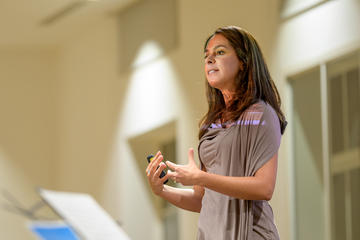
|
Principal Investigator
Dr Andreza Aruska de Souza Santos Andreza is the director of the King's Brazil Institute, at King's College London and before that she directed the Brazilian Studies Programme at University of Oxford. Her research is concerned with the intersections and dynamics between formal and informal political and economic systems in Brazilian cities. Andreza is particularly interested in employment, migration, and health policies in mining towns in Brazil. Given her interests in local governance and informalities, Andreza is currently looking at sub-national responses to the pandemic in Brazil and has examined the impact of inequality in health policies. Her work has featured in Journals such as Nature Human Behaviour, Science, The Lancet, Ethnography, and others. She is the author or editor of three books focusing on cities in the global south. Previously, Andreza worked at the School of Anthropology, also at Oxford, where she is still involved in teaching on urban ethnographic methods. She completed her Ph.D. in Social Anthropology at the University of St Andrews, Masters in Social Sciences at the University of Freiburg, University of KwaZulu Natal and Jawaharlal Nehru University; and Bachelor’s Degree in Political Science at the University of Brasilia.
For publications and academic background please check her webpage. Twitter: @Andreza_Aruska |
|
Dr. Ana Elisabete Medeiros is the Deputy Coordinator of the PPG-FAU/UnB – Post-Graduate Program at the Faculty of Architecture and Urbanism at the University of Brasilia. Past Academic Visitor at LAC/University of Oxford – supported by FAPDF – she currently coordinates the research project “Heritage City Timing and Scales – the case of Pilar de Goias”, whose major interest is to understand the relations in time and space between mining and preservationist practice in Pilar de Goias through its architectural and urban heritage. Since 2021, this project has involved several undergraduate grantees from CNPq, FAPDF, and UnB. This is one of the fronts of the One-company towns in Brazil Project |
|
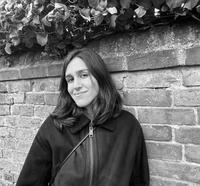
|
Barbara Abrahao Barbara is a DPhil candidate in the School of Anthropology and Museum Ethnography at Oxford. Her research and academic interest focuses on Amazonia, traditional community and land rights, climate crisis and environmental politics. |
| Antônio Fernando Costa Pella is a doctoral student in the Graduate Program in Economics at the Catholic University of Brasilia. His research interests involve international trade, microeconometrics and data science. |
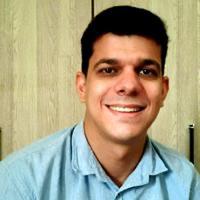
|
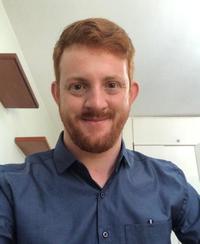
|
Dr. Lizandro Lui is Professor at the Pos-Graduate Program in Public Policy and Government at Fundação Getúlio Vargas (FGV-Brasília, Brazil). He's Doctor in Sociology and his research interests involve federalism, local government, implementation and management of public policies. |
| Brenno Navarro is a graduate student in economics at the Federal University of ABC (UFABC) and a research assistant at the University of Oxford. His professional and study topics are related to the study of the Brazilian economy, macroeconomics, marketing, international relations, and financial market. |

|
|
Guilherme Vianna is a PhD candidate at IPPUR-UFRJ, in urban planning and a visitor student at King's College (2024). He obtained his BA in economics at UFRJ (Federal University of Rio de Janeiro) and his master's also in Economics, at UFF (Fluminense Federal University), with one semester studying at Universidade Autonoma de Madrid. His research looks at urban sprawl, urban planning, urban mobility, income distribution, and social inequalities. |
||||
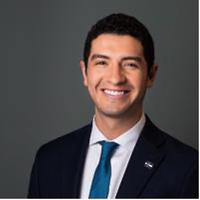
|
Advisor
Max Nathanson Max currently serves as Economic Development Advisor at the Colorado Department of Labor and Employment, focusing on the future of work and just energy transitions. He is also Founder and Managing Director of the Oxford Urbanists, a global social enterprise. He previously spent two years as Global Business Development Manager for Colorado Governor Jared Polis, where he led economic development and foreign policy initiatives and directed the Colorado Mask Project as a member of the Governor's COVID-19 Innovation Response Team. He holds a master's degree in Development Studies from Oxford and a bachelor's degree in Political Science from the University of Colorado.
Twitter: @MaxNathansonCO |
|||
|
Stakeholder Partner
Giane Boselli holds a MSc in Social Sciences and two BAs in Law and Social Sciences (UNESP|Brazil). She has developed a career of more than 10 years in the management of international cooperation projects, mainly with local governments. She is currently working as a Project Manager for United Nations Development Programme (UNDP-Brazil Country Office), developing a large project about Localizing the Sustainable Development Goals in 116 Brazilian towns affected by the oil and gas chain, with support from Petrobras. She has also worked for UN Women Brazil and Southern Cone, developing international cooperation projects related to SDG 5 with several countries in Latin America. She has also been a Research Analyst at the National Confederation of Municipalities (CNM), being part of the Technical Studies Area and developing studies on local public policies and impacts of federal programs on local governments. Her broader interests are in developing strategies to provide sustainable development and gender equality in Latin American countries, mainly in municipalities affected by oil exploration activities. |

|
|||
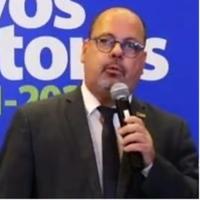
|
Stakeholder Partner
Eduardo Stranz He has worked for more than 20 years at the National Confederation of Municipalities (CNM) in Brazil, one of the largest organizations in the world representing local governments. Currently, he works as a Senior Advisor to the CNM board, and served for many years as the coordinator of the Technical Studies Area, leading research on municipal public policies and finances. He also leads projects developed by CNM related to the promotion of the Sustainable Development Goals among the 5,568 Brazilian municipalities. He was one of the leading authors of "Mandala ODS” (SDG Mandala), an application available to municipal public managers and society that makes possible to diagnose, monitor and evaluate the performance of Brazilian Municipalities indicators regarding the level of reach of the 2030 Agenda and the Sustainable Development Goals (SDG).
Twitter: @EStranz |
|||
Research collaborators:
Professor Nuno Faria, University of Oxford and Imperial College.
Twitter: @nmrfaria
Former Participants:
Nicolas Lippolis
Sabrina Li
Luiza Ceruti
Mariana Maia
Dr Ben Coles
Dr. Claudia Martins
Lara Moura
Kaio Cardoso
Sabrina Albuquerque Oliveira
Luísa Vieira
Laura Elisa Becker Bauer


